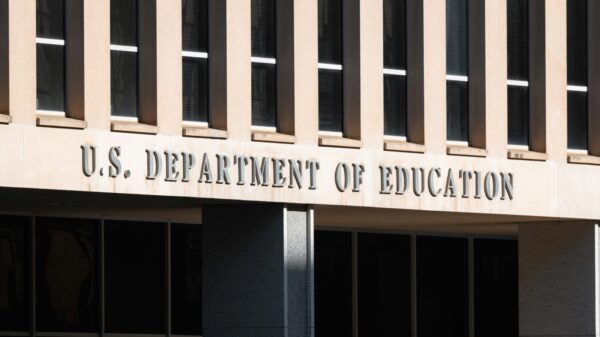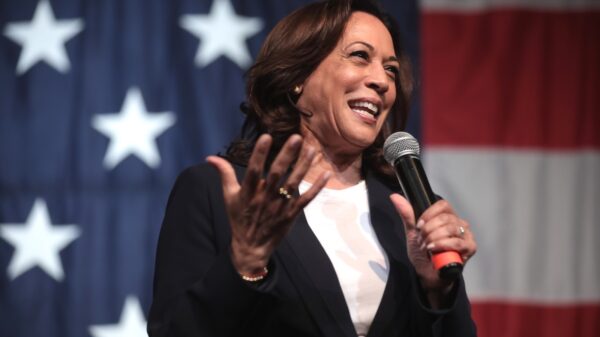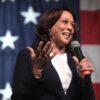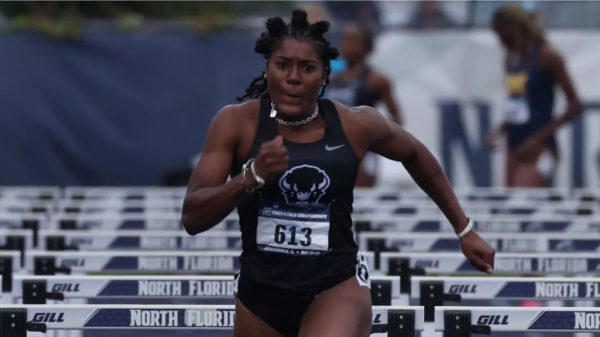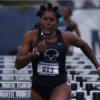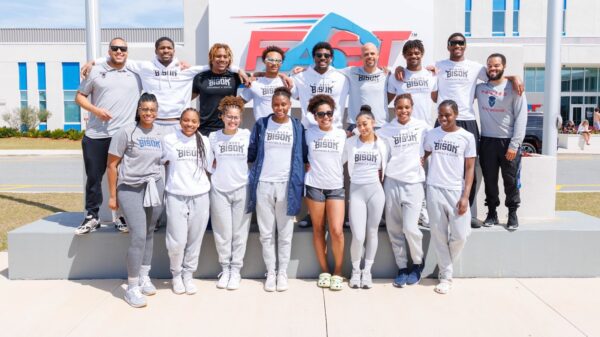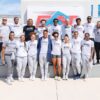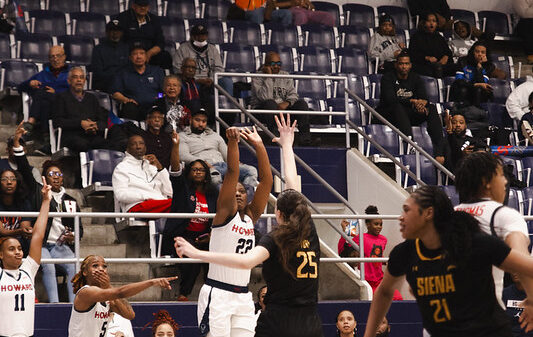
Howard University’s Board of Trustees selected Dr. Ben Vinson III, Case Western Reserve University (CWRU) provost and executive vice president, to serve as Howard’s 18th president.
Vinson, 52, will effectively assume President Wayne A. I. Frederick’s position on Sept. 1. The appointment comes after a 12-month presidential search since Frederick announced his intent to retire by June 2024 last year.
“My message is that I’m passionate about education. It is one of the most important values that I have,” Vinson said in an interview with The Hilltop. “I promise to work my hardest to be sure that I, to my very best with the Howard University community… elevate that institution to the best of my ability. That is my heartfelt pledge to this community.”
Vinson, who holds a B.A. in history and classical studies from Dartmouth College and a Ph.D. in history from Columbia University, has a career in higher education that spans 25 years, according to his CWRU profile and LinkedIn.
In addition to his nearly five-year career at CWRU, Vinson has held varying professorial and administrative roles at Barnard College, Penn State University, The Johns Hopkins University and The George Washington University.
In a press release from the university, Frederick expressed his excitement in welcoming Vinson as the next President. “His vast experience and proven track record in academic leadership make him the ideal candidate to lead our esteemed institution into the future,” Frederick said.
Chairman of the Board of Trustees Dr. Laurence Morse oversaw the 21-person search committee, and pointed out a key aspect of Vinson’s resume that he said made him a strong contender for the presidency.
“In every senior leadership role he’s held in a university context, he’s been an innovator,” Morse said. “He’s not only created novel interesting programs and initiatives, he’s executed them, taken them to full fruition and in many cases, achieved outstanding results having done so.”
CWRU credits Vinson with spearheading the university’s “Think Big” strategic initiative, which in 2019, outlined plans to improve the overall path of the institution. CWRU says that the initiative “received national attention for its innovative and inclusive planning process.”
Vinson has not been enrolled in or employed at an HBCU, but said that much of the work he’s done at prior institutions includes helping to create research, student and teaching “pipelines” to higher education institutions including HBCUs.
“I believe in paying it forward,” he said. “That’s how I’ve lived my life, and I’m excited to get a chance now to apply all the things that I’ve learned to be on the other side – rather than creating consortiums and networks with HBCUs – to actually be at an HBCU.”
According to his professorial profile at CWRU, Vinson is “a historian of Colonial Latin America, with an emphasis on African Diaspora and Mexico.”
He has authored or co-authored seven books, including “Africans to Spanish Americans” and “Black Mexico: Race and Society From Colonial to Modern Times,” which explore the historical significance of the intersection of Latin America and the African diaspora.
In the coming months, Vinson said that he will be preparing for his new role and “reading everything that I possibly can about Howard.”
Vinson admitted that he has “a lot to learn” about the Howard community, but said he’s already begun preparing for the new role. “I’ve already started cracking the book open on Rayford Logan’s history of Howard University from foundation…,” he said, which is a book about the first 100 years of Howard.
Vinson will also get the chance to “understand all of the nuance of how the institution works through all of the types of documents that an administrator needs to be familiar with…”
He disclosed that this summer, he will come to Howard to meet with individuals that the Board and the transition team suggest. He did not specify who these individuals are or what day he will make the trip, citing the plan’s early stages.
As university president, Vinson expressed his intent on meeting and building connections with the student body come September. “I am delighted to have the chance to get to know students in all of the various settings that is possible – in their residences, on the courts, in the fields of sports, all of the various dimensions, in the classrooms, in their research arenas – I find that very, very important,” he said.
Morse explained that the process of selection was “really broad, rigorous, thorough and exhaustive.” In the beginning stages around May of last year, executive search firm Isaacson Miller was contracted to review more than 200 people including applicants, potential candidates and sources of recommendation, Morse said.
In November, that number was narrowed to about 80 people. By January, the search committee was evaluating about 23 candidates, and throughout February and March, “we’re interviewing people, we’re spending time with them in person,” Morse said in reference to a pool of eight remaining candidates.
After that period, the committee interviewed finalists and ultimately recommended Vinson to the Board.
“We’re tremendously excited to work with him,” Morse said. “We believe that he will challenge us as we will challenge him, and we believe that great things are to come.”
Vinson is the chairman of the board of the National Humanities Center, an institution dedicated to advancing studies in the humanities, and was elected vice president of the research division for the American Historical Association in 2020, the press release says. He is involved with numerous other organizations including National Humanities Alliance, the Cleveland Museum of Natural History and the Conference on Latin American History.
Vinson is originally from Rapid City, South Dakota, and his father served in the United States Air Force. He has a wife and three children.
Copy edited by N’dia Webb


